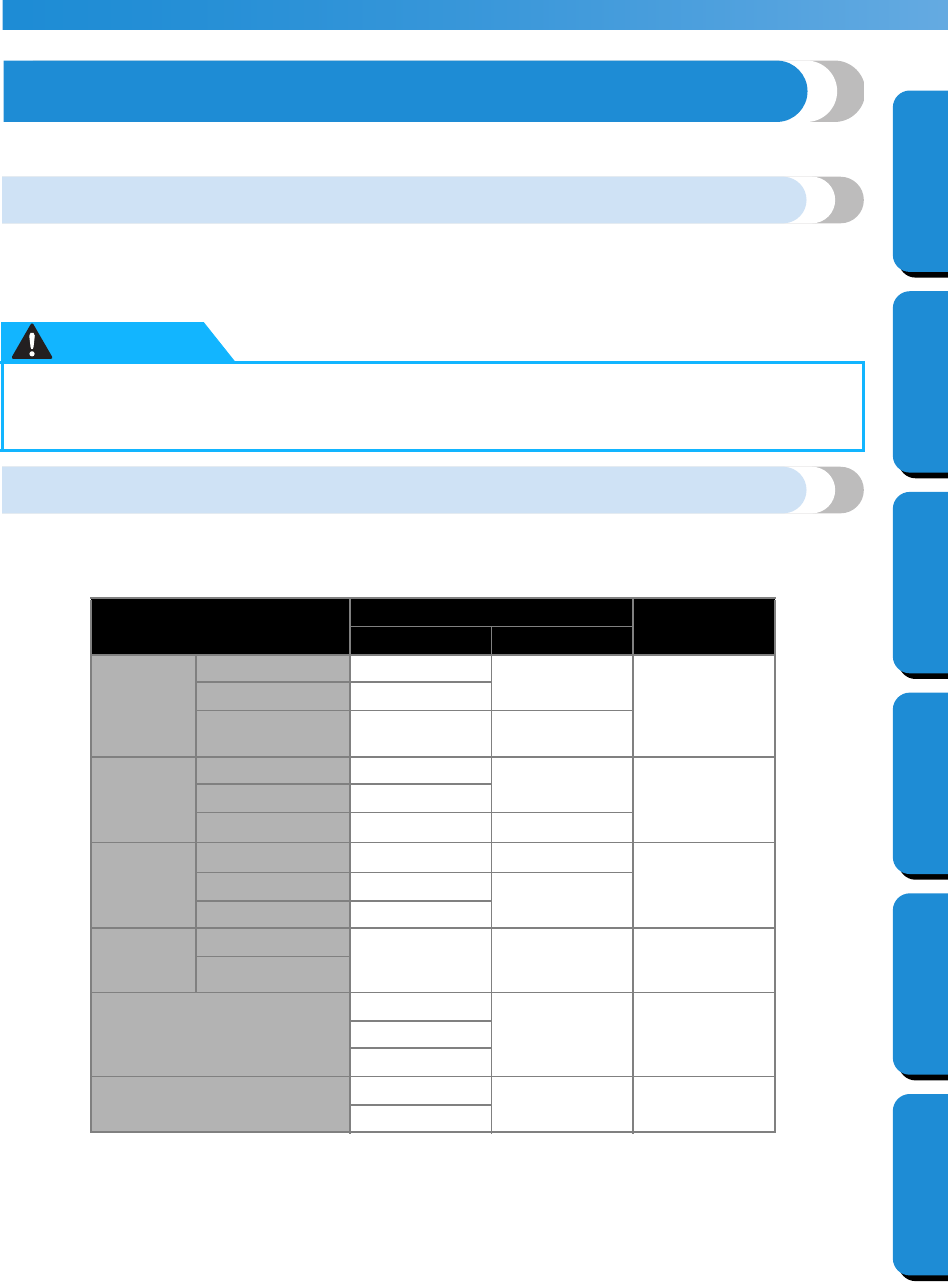
GETTING READY ———————————————————————————————————————————————————————
—
30
GETTING READYCONTENTS SEWING BASICS UTILITY STITCHES APPENDIX INDEX
Replacing the Needle
This section provides information on sewing machine needles.
Needle precautions
Be sure to observe the following precautions concerning the handling of the needle. Failure to observe these
precautions is extremely dangerous, for example, if the needle breaks and fragments are dispersed. Be sure to
read and carefully follow the instructions below.
Needle types and their uses
The sewing machine needle that should be used depends on the fabric and thread thickness. Refer to the
following table when choosing the thread and needle appropriate for the fabric that you wish to sew.
●
Only use home sewing machine needles. Use of any other needle may bend the needle or
damage the machine.
●
Never use bent needles. Bent needles can easily break, possibly resulting in injuries.
CAUTION
Fabric Type/Application
Thread
Size of Needle
Type Size
Medium
weight
fabrics
Broadcloth Cotton thread
60–
80
75/11–90/14
Taffeta Synthetic thread
Flannel,
Gabardine
Silk thread
50
–
80
Thin
fabrics
Lawn Cotton thread
60–
80
65/9–75/11
Georgette Synthetic thread
Challis, Satin Silk thread
50–
80
Thick
fabrics
Denim Cotton thread
30–
50
90/14–100/16
Corduroy Synthetic thread
50
Tweed Silk thread
Stretch
fabrics
Jersey
Thread for knits
50–
60
Ball point needle
(golden colored)
75/11–90/14
Tricot
Easily frayed fabrics
Cotton thread
50
–
80
65/9–90/14Synthetic thread
Silk thread
For top-stitching
Synthetic thread
30 90/14–100/16
Silk thread
S2_brotherE.book Page 30 Wednesday, May 14, 2003 8:05 PM


















